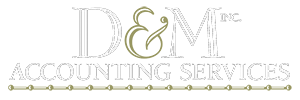Opportunities for in-home businesses have never been greater. Thanks to the internet, people can work from virtually anywhere, including the comfort and security of home. Whether you have a license consulting business, a daycare center, a salon, or something entirely different, this is an excellent way to not only earn a lucrative income but also save money in the form of tax deductions.
According to an article in the New York Times, roughly 43 percent of all workers in the U.S. performed some level of work from home in 2016. However, that percentage is on the rise as more corporations recognize the advantages of allowing employees to telecommute. In addition, a vast number of freelancers operate remotely.
The problem is that many people who run an in-home business are unaware of the applicable tax deductions. That means they’re paying more than they should. If you have this type of setup, the following are six specific deductions you’re probably overlooking.
1. Vehicle Expenses
Even if you only run to the post office a few times a week, you can deduct expenses when using your vehicle for business-related purposes. There are several options, including licensing and registration, gas and oil, maintenance and repairs, and leasing costs.
In fact, you can take a tax deduction for supplemental insurance that covers you when using your vehicle for business. You can also deduct interest on any money borrowed when purchasing an automobile. One important note, if you use your vehicle for both personal and business reasons, make sure you maintain detailed records on all expenses, including mileage.
2. Insurance

Beyond the insurance that you keep on your automobile, you can deduct insurance related to your house, as well as any equipment or machinery used as part of your job.3. Office-Related Expenses
Various items you buy to run your in-home business are also tax deductible. For example, pens, pencils, paper clips, folders, and stamps all qualify. You can also deduct items like your smartphone or tablet, computer, fax machine, and printer. Keep in mind that because certain assets depreciate over time, the government only allows you to claim a portion of the original purchase price.
4. Property Taxes and Mortgage Interest
You might find these two in-home business expenses the most surprising. However, if you currently have a mortgage on your house and you use the property for your in-home business, you have the right to claim both the property taxes and interest. Remember, there are a few caveats.
As an example, you must use the space as your primary place of business. Also, you have to use the space on a regular basis for handling business matters, including meeting with clients. Something else of importance is that if you rent your home, you can deduct that expense, as well, but only for the area designated for business-related purposes. In other words, if you have one bedroom set aside for your company, you would only be able to deduct that specific square footage.
5. Retirement Plan Contributions
Setting up a retirement plan is a great way to save on taxes. Unlike the popular belief that these are only for large corporations, small business owners have the same opportunity. A prime example is a defined benefit plan, which works perfectly for in-home businesses with no or only a few employees. With this plan, you can put away significantly more money compared to a 401(k) account, and you can use it as a tax deduction.
6. Miscellaneous Expenses

There’s another category for in-home tax deductions that serves as a “catch-all” for things like utilities, phone, internet connection, and even cleaning supplies. Again, you need to keep excellent records to show the expenses are for your business.
The Bottom Line
If you have or want to start an in-home business, talk with a financial expert about these and other tax deductions. As a result, you can save money while growing your company.

